A new survey from the Leger Marketing firm for the non-profit Association for Canadian Studies shows some interesting attitudes related to COVID-19
Conducted in early July and released today, a survey shows Quebeckers most likely to return to giving handshakes and hugs within the next six months in spite of being the hardest hit by the coronavirus.
Asked of Canadians in each province the responses ranged from a low of 40 per cent in Ontario to a high of 43 per cent in Quebec.
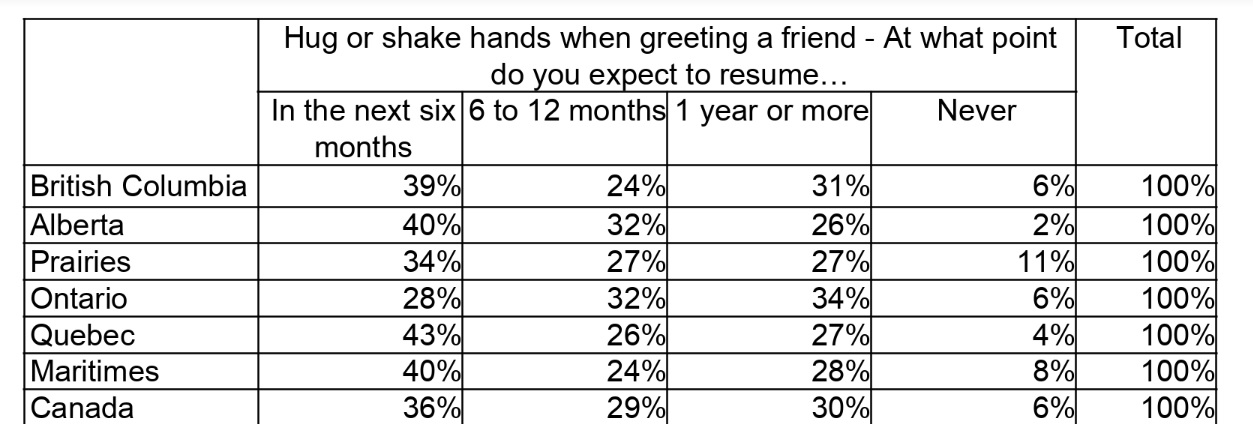
Leger Marketing survey for the Association of Canadian Studies (july 3-5, 2020)
Breaking it down along linguistic lines, French speakers (47.8%) were more like to resume these gestures within six months than English speakers (33.5%) and other linguistic groups (21.3%) and with gender, more men (37.4%) than women (33.7%)
Quebeckers were also the most likely to want to return to sporting event, concert or play within six months (16%), while Ontario respondents, (the other province hardest hit by COVID) was the lowest at eight per cent.
Another poll by Leger for the ACS conducted July 10-12, showed some very strong opinions about controls around COVID restrictions.
Regarding mask wearing, a clear majority said governments should make masks mandatory in public spaces and that they would wear masks if made mandatory, for example in grocery stores, 90 per cent said they would comply.
Another high percentage disagreed that obligatory mask wearing was an infringement on rights (70%) and that it would be one’s civic duty to do so (84%).
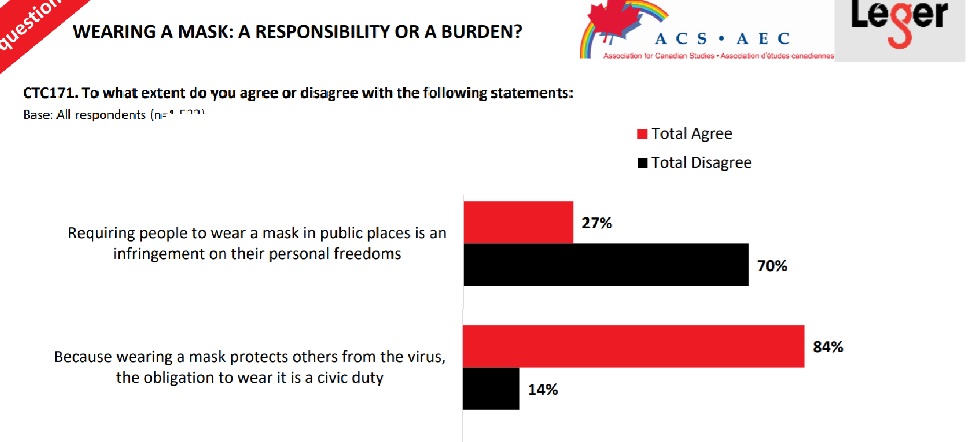
People generally also agreed that police should have the right to fine or arrest people who didn’t wear masks where mandatory (68%) and also arrest of fine those who don’t respect social distancing (62%);
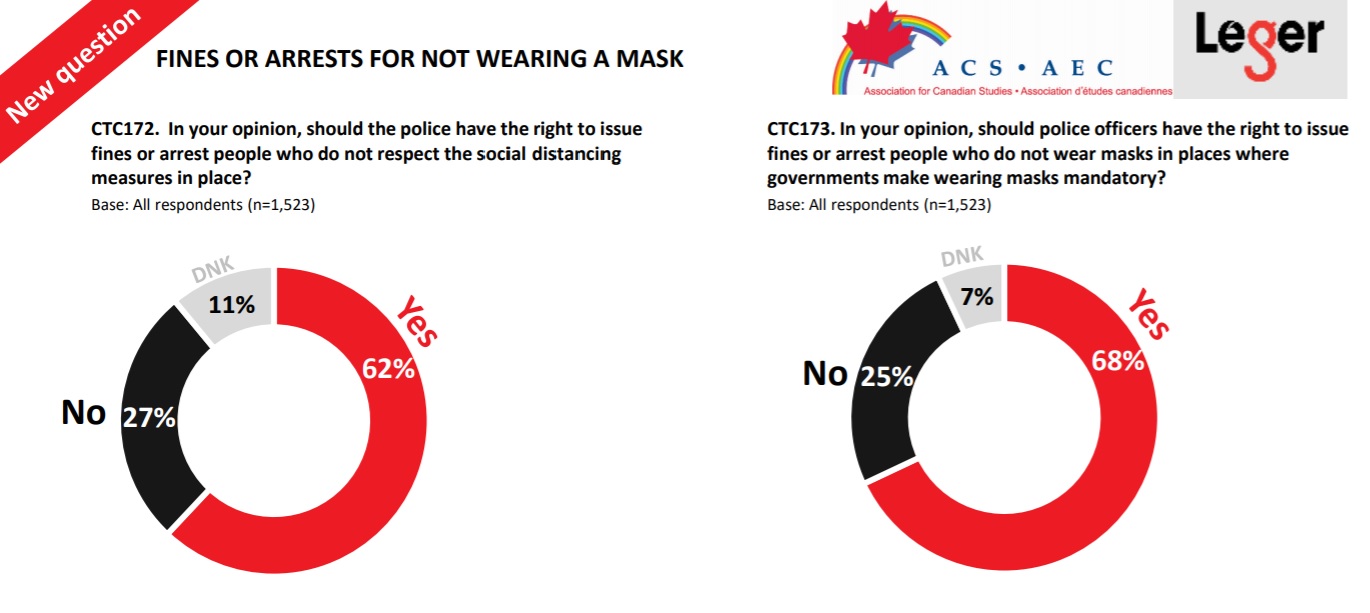
Are we at the end of the so-called first wave? Some 40 per cent of respondents though so, but 47 per cent said no, with 13% not sure, while 80 per cent feel there will be a ‘second wave’. In a related question 30 per cent thought the worst was over, while 40 per cent thought the worst was yet to come.
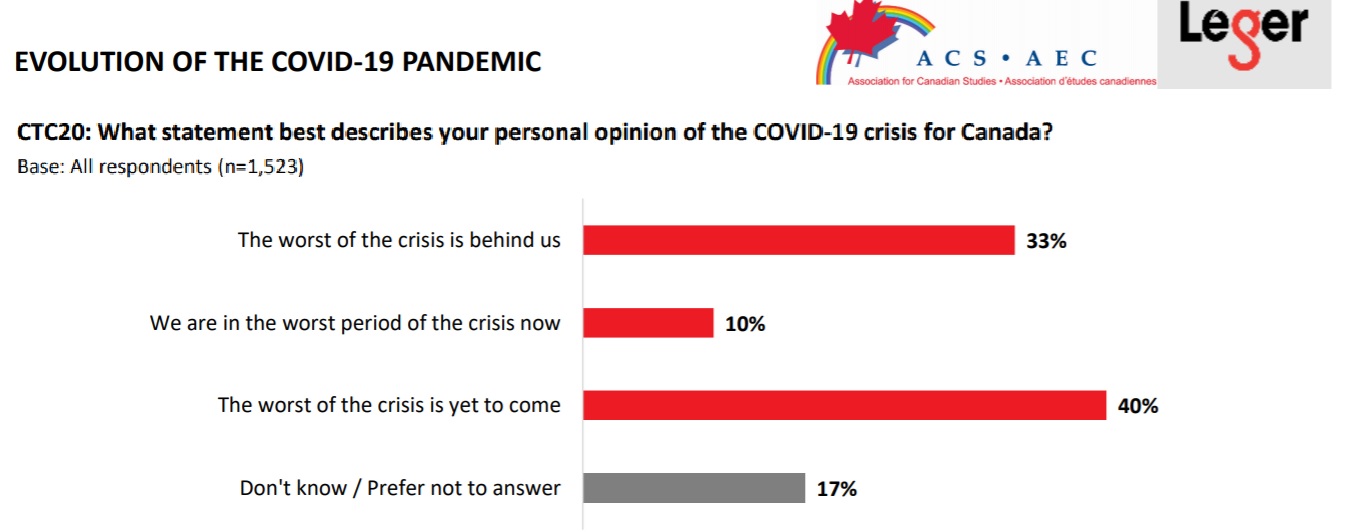
It also seems more people are still afraid of contracting the virus than not with 59 per cent somewhat to very afraid, and 40 per cent having little or no fear of the disease.
As to the ‘return to normal’ most thought it would take some time still before that can happen, (58%), while nine per cent said life will return to normal, however a significant group (32%) felt that life would never return to the normal we knew.
As an interesting addition, a survey in April by the Angus Reid Institute found that 45 per cent of respondents to that poll indicated one of things they were most eager to do when the pandemic risk passes was to giving someone a big hug.
additional information-sources
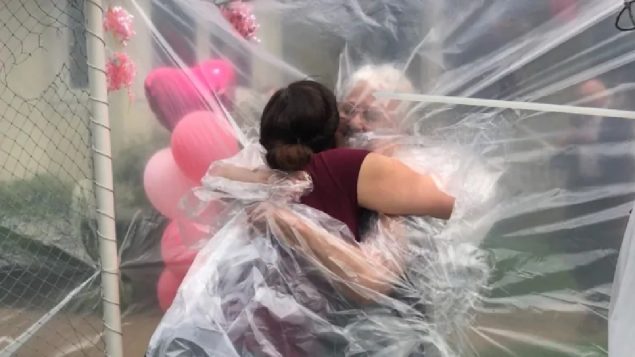






For reasons beyond our control, and for an undetermined period of time, our comment section is now closed. However, our social networks remain open to your contributions.